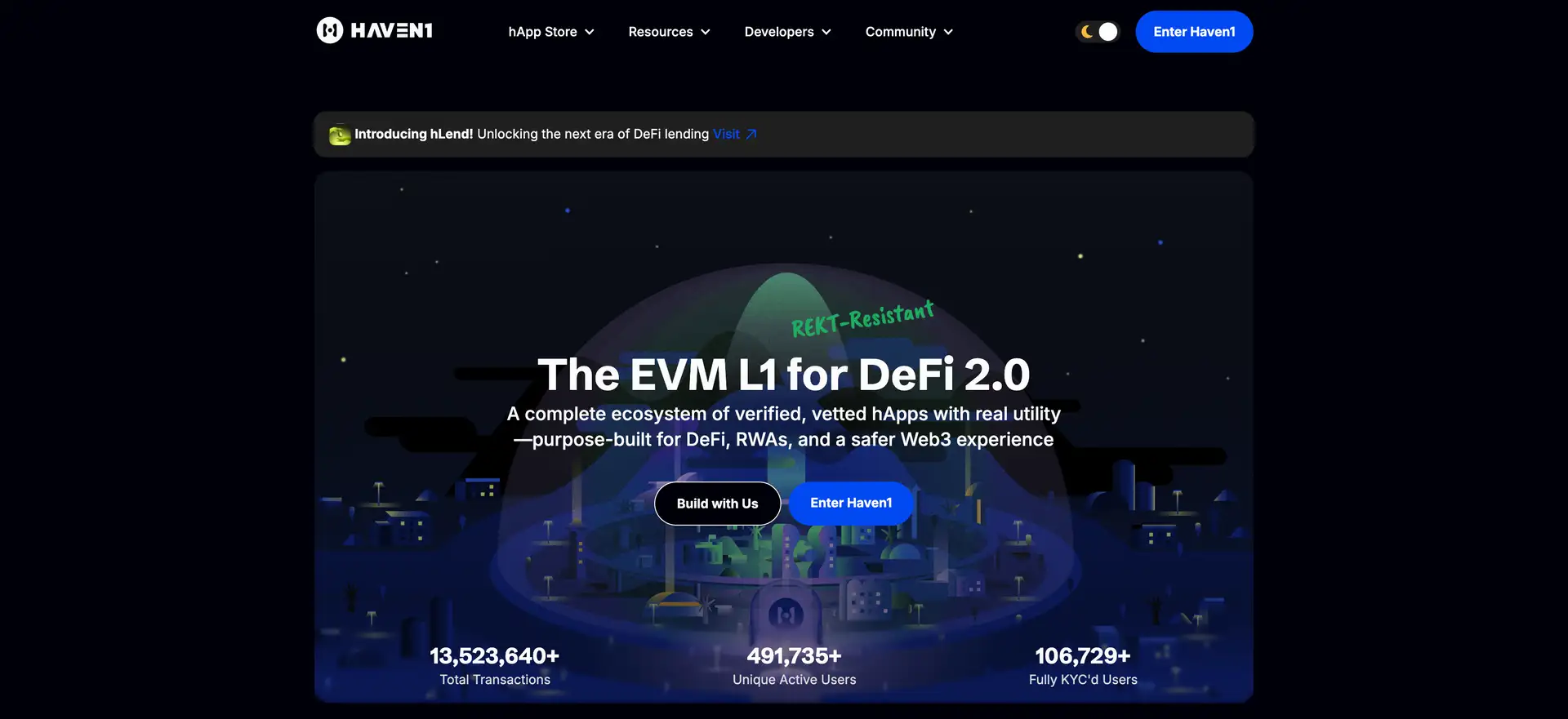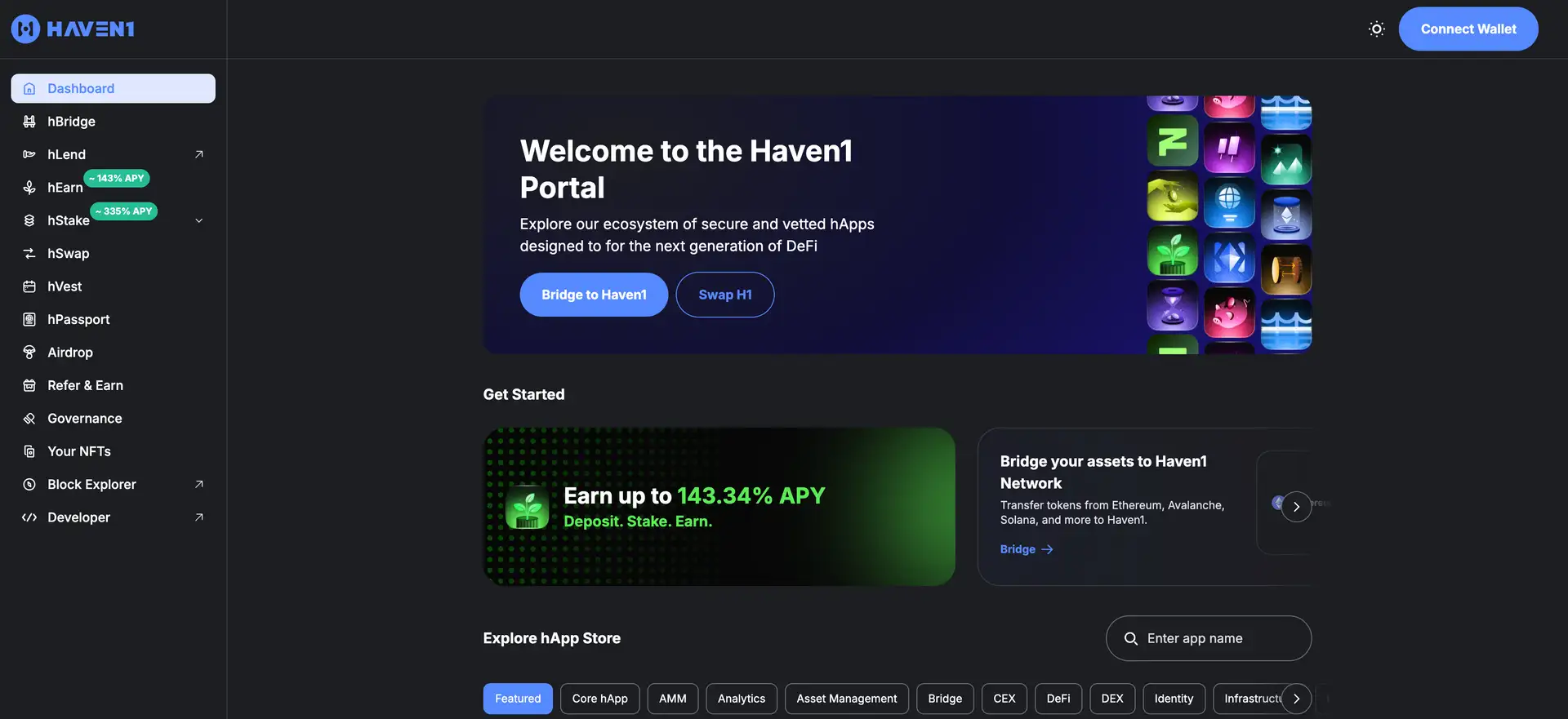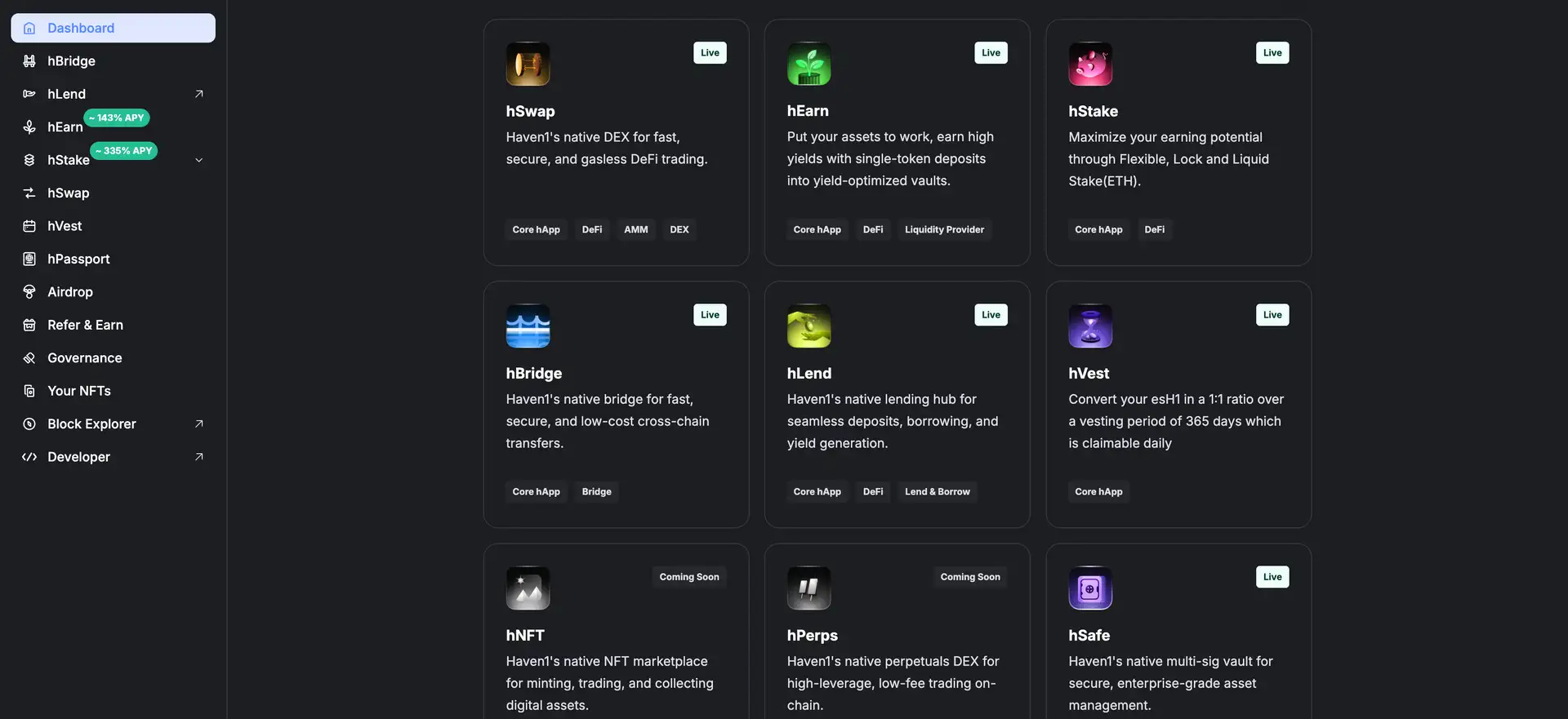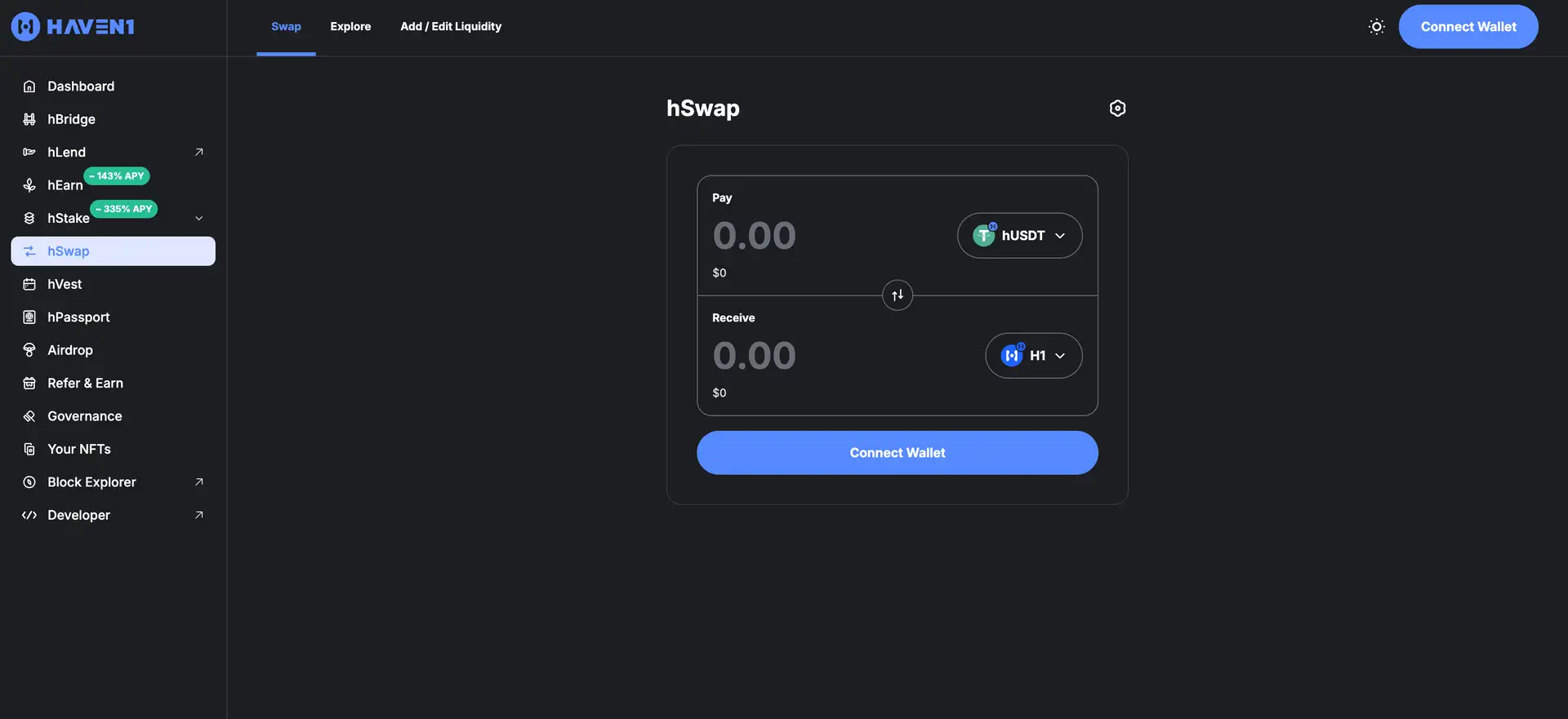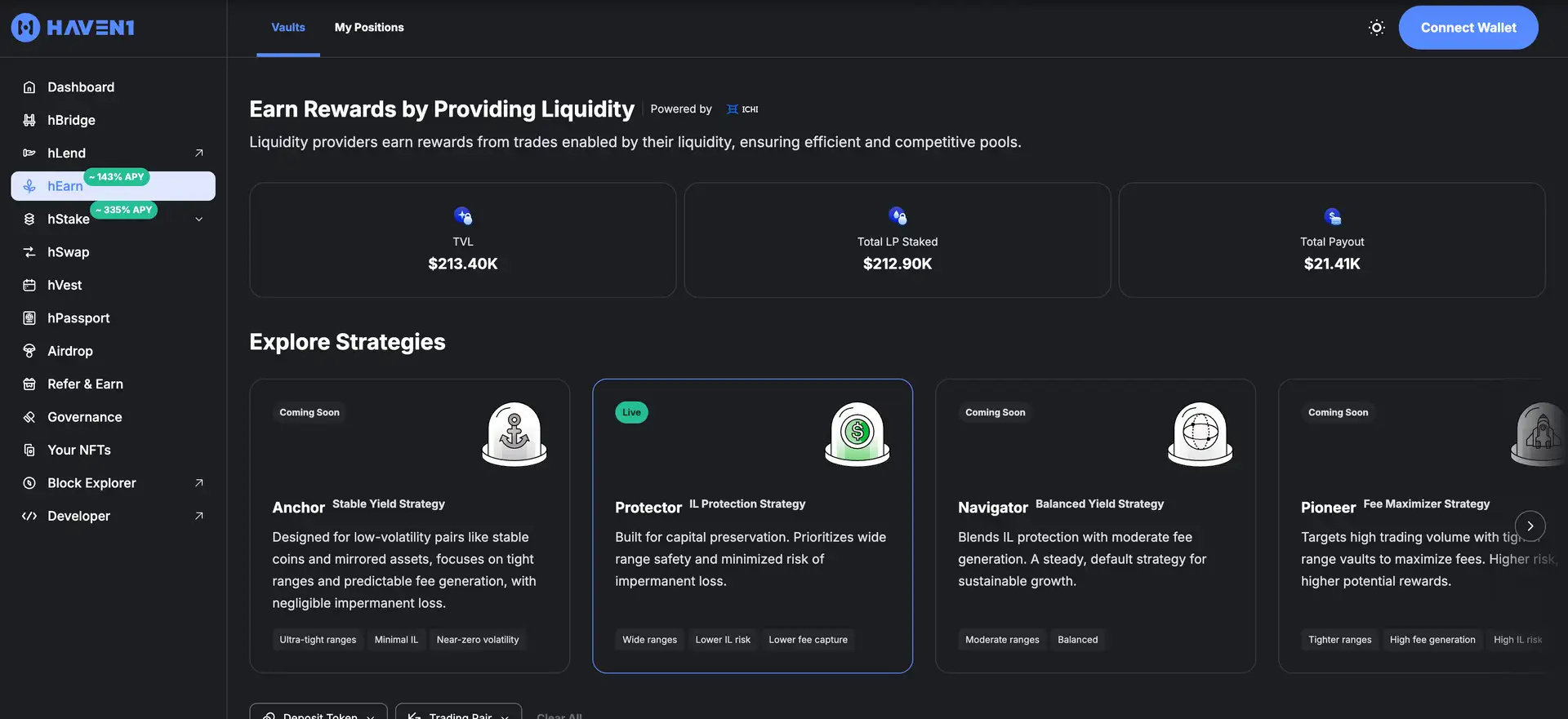About Haven1
Haven1 is a next-generation blockchain platform built to redefine security, identity, and usability in decentralized finance and tokenized asset ecosystems. Positioned as the first REKT-resistant EVM Layer 1, Haven1 merges institutional-grade standards with decentralized access to solve the persistent challenges of fraud, hacks, and unreliable counterparties in Web3.
By introducing verified identity systems, permissioned smart contract deployment, AI-driven security, and a non-inflationary governance token, Haven1 offers a secure and compliant infrastructure for scalable blockchain applications. Its mission is to enable the safe adoption of DeFi 2.0 and tokenized real-world assets by retail, professional, and institutional users across the globe.
Haven1 was founded to bring security and structure to a decentralized world. The project's unique value proposition lies in blending permissioned architecture with true decentralization. While traditional Layer 1s are either too open and vulnerable or too centralized and rigid, Haven1 achieves equilibrium by allowing only verified builders to deploy audited smart contracts, thereby ensuring trust without sacrificing openness.
The heart of the Haven1 ecosystem is its identity protocol—hPassport—an anonymized but verifiable identity system that adds KYC/KYB-level verification to Web3 without exposing personal details. Combined with network-wide wallet security measures like 2FA, whitelisted IPs, and anomaly detection, this creates a fortress-like environment where only trusted actors operate. Haven1’s infrastructure enables use cases that were previously difficult to implement on-chain, such as compliant prediction markets, reputation-based lending, tokenized real estate investments, and identity-integrated gaming experiences.
Haven1’s blockchain is powered by a collective governance model. A minimum of nine reputable institutions serve as validators—each selected based on stringent transparency and decentralization criteria. This “Collective” operates under Proof-of-Authority (PoA), validating transactions and maintaining uptime while avoiding the pitfalls of Delegated Proof-of-Stake or centralized sequencers. The governance structure aligns with regulatory definitions of decentralization, ensuring no single entity can control the network.
In terms of competition, Haven1 operates in the Layer 1 blockchain space but is uniquely focused on permissioned decentralization and institutional-grade security. Comparable platforms include Polygon, which provides scalability and low fees, and Optimism, a Layer 2 rollup focusing on throughput. However, Haven1 distinguishes itself through mandatory audits, verified deployment, and gasless transaction support, which are not standard on these networks.
As of its upcoming mainnet launch, Haven1 has already amassed a strong community and business backing. With over 106,000 KYC’d users, 491,000+ unique active addresses, and 13.5M+ transactions, the foundation is set for real adoption—not just speculation. The network also features a live hApp Store with audited, verified dApps such as hSwap, hLend, and hStake, showcasing early traction in DeFi services. Supported by the Haven1 Association, the network’s ecosystem continues to grow through grants, developer tools, and onboarding resources.
Haven1 provides numerous benefits and features that make it a standout project in the Layer 1 blockchain and DeFi ecosystem:
- REKT-Resistant Architecture: Built-in protection mechanisms such as verified identity, permissioned deployment, and smart contract auditing prevent hacks and rug pulls.
- hPassport Identity Verification: All users and builders must be KYC/KYB verified, enabling compliant DeFi and tokenized asset interactions without exposing user data.
- Zero Gas Fees: The network eliminates volatile gas costs. Application-specific fees in $H1 create a predictable and developer-friendly model.
- Decentralized Governance: Token holders control protocol upgrades, ecosystem funding, and validator selection through structured voting rights.
- AI-Powered Security: Continuous threat detection via on-chain AI monitors transactions, contract activity, and anomalies 24/7.
- Institutional-Grade PoA Consensus: The Collective—nine independent global businesses—validate transactions with full transparency and decentralization safeguards.
- Developer-Friendly Ecosystem: Grants, tools, and support available for verified builders; two mandatory audits required for safety.
- Integrated DeFi Suite: Launch-ready hApps include hSwap (DEX), hLend (Lending), and hStake (Staking), fully governed by the community.
Getting started with Haven1 is straightforward for both regular users and developers looking to explore DeFi 2.0 in a secure and scalable environment.
- Visit the official website: Head to https://haven1.org and click “Enter Haven1” to access the ecosystem.
- Create a Wallet with hPassport: All users must complete identity verification to obtain their hPassport. This step is required to interact with any application on Haven1.
- Explore the hApp Store: The Haven1 hApp Store showcases verified, audited applications like hSwap, hLend, and hStake.
- Acquire H1 Tokens: H1 is used for governance, application fees, and staking. It can be obtained from decentralized and centralized exchanges (link to listings coming post-mainnet).
- Stake or Participate in Governance: Stake H1 to support the network and participate in protocol decisions using veH1 tokens.
- Develop on Haven1: Verified developers can access the Developer Hub, submit audits, and deploy their dApps.
- Join the Community: Participate in discussions on Discord, Telegram, or follow Haven1 on X (Twitter).
Haven1 Token
Haven1 Reviews by Real Users
Haven1 FAQ
The hPassport is an anonymized but verifiable identity credential required for every user and builder on Haven1. It enables KYC/KYB-verified participation while keeping private data off-chain, ensuring that all interactions occur between trusted, verified users. This mechanism forms the foundation of Haven1’s REKT-resistant ecosystem, dramatically reducing fraud, rug pulls, and sybil attacks while maintaining compliance and privacy.
Haven1 replaces conventional gas fees with a dollarized application-specific fee model paid in $H1. Instead of unpredictable gas costs, users only pay fees when interacting with smart contracts such as swaps, loans, or staking actions. These predictable fees fund validators, builders, and network upkeep, allowing Haven1 to remain gasless, scalable, and self-sustaining while maintaining economic balance.
Every smart contract on Haven1 must undergo two independent third-party audits before it can be deployed. This strict requirement prevents vulnerabilities and ensures code integrity across the ecosystem. The contracts are then diff-checked to confirm they match the audited versions exactly, creating a transparent, REKT-resistant security standard that users and institutions can rely on.
The Collective is a group of independent, globally trusted organizations that validate transactions and safeguard Haven1’s Proof-of-Authority network. Each member controls less than 11% of total authority, ensuring true decentralization and transparency within a permissioned framework. The Collective manages uptime, governance, and bridge access collaboratively, guaranteeing a secure yet distributed blockchain infrastructure.
Haven1’s application-specific fee system empowers Web3 game developers to integrate monetization directly into gameplay without writing complex payment contracts or dealing with token price volatility. Developers can charge fixed, predictable fees in $H1 for premium actions like unlocking extra levels or purchasing digital assets. This model fosters sustainable revenue streams while maintaining transparency, security, and audit compliance across gaming ecosystems.
You Might Also Like










